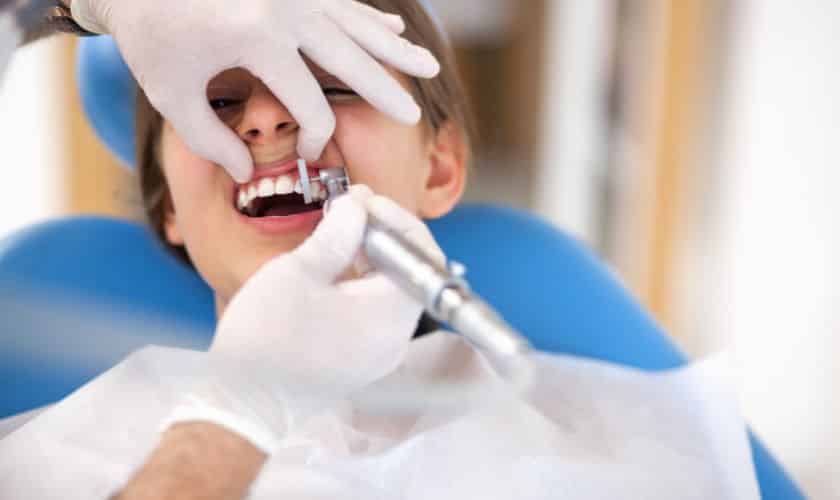Not only does a beautiful smile improve our looks, it also signifies excellent oral health. For people who have accepted dental implants, good oral hygiene is essential to preserving the usefulness and longevity of these prosthetic teeth. Dental implants provide stability and a natural feel as a long-term alternative to lost teeth. Implants do, however, need routine maintenance to avoid problems including infection, gum disease, and plaque accumulation.
We explore the crucial procedures and industry best practices for dental implant cleaning in this extensive guide. This blog strives to equip you with the knowledge required to maintain your dental implants in top condition, whether you are a new implant recipient or someone wishing to improve your oral hygiene regimen. Let’s explore the ins and outs of efficient dental implant care so that you can promote a long-lasting, confident smile.
The Importance of Professional Cleanings
No matter how careful you are about keeping your dental implants clean, you will occasionally need professional cleanings. If you’re like most patients, you’ll need to get professional cleaning every six months. Patients who smoke, for example, may require more regular cleanings.
You can ensure that any bacteria or plaque buildup is removed before it can cause damage or infection by adhering to your oral hygienist’s recommended cleaning schedule. Your hygienist will also check the gums and tissues surrounding your implants and let you know if there are any developing complications.
To remove tartar and stains, your new teeth will be taken out during your professional dental implant cleaning at InSmyle Dental
and soaked in a specific solution.
Daily Life with Carefree Full Mouth Dental Implants
One of the primary reasons so many people choose dental implants over other tooth replacement options is the many years of essentially carefree chewing and talking they will enjoy after a brief time of recovery from their implant operation. Dental implants are the most convenient restorative dentistry procedure in terms of regular cleaning and maintenance.
Furthermore, because they perfectly replicate actual teeth, superior dental implants look far better than standard dentures. Furthermore, whole mouth dental implants perform more like natural teeth. This implies that you won’t have to worry about your dentures not fitting properly at any time of day to laugh and smile without inhibition.
It makes prudent to consider all of the benefits that come with dental implants before deciding to have one, a whole mouth implant, or perhaps an implant-supported bridge. Think about:
- Following a hassle-free, long-term oral hygiene routine that is similar to the one recommended for natural teeth and involves twice-yearly expert cleanings
- Avoiding the unpleasant circumstance of a friend or relative seeing your dentures soaking on your bedside and the need to remove them every day
- Relishing the chance to eat nearly anything you could when your original teeth were in good condition, such as steak, almonds, and desserts
- Speaking with friends or coworkers without having to worry about your prosthetic teeth slipping or permanently obstructing your speech, as dentures frequently do
What to Expect with Dental Implants: Cleaning and Maintenance
If you decide to get dental implants, your oral surgeon will give you specific instructions for cleaning and taking care of yourself in the hours and days that follow your procedure. You’ll also need to follow a special oral hygiene routine and avoid certain meals for a few weeks after your dental implants are placed. This will let your body heal and adjust to your new prosthesis while lowering the risk of infection.
The information below explains how to gradually clean and care for your dental implants to increase their longevity and give you everyday health benefits.
The Correct Approach to Maintaining Your New Teeth at Home
Ensure that you clean your new teeth at least twice daily, preferably immediately after breakfast and just before bedtime, just as you would with your natural teeth. For the delicate cleaning of your original teeth, we recommend using soft-bristle brushes, and the same applies to your newly implanted teeth. In fact, it is even more crucial, as despite the strength and durability of your new teeth, abrasive bristles and aggressive brushing can cause harm.
If you are accustomed to using a sonic, rotating, or oscillating electric toothbrush, you are in luck, as this device has proven to be effective in plaque removal and may even surpass conventional toothbrushes in promoting healthy blood flow to the gums.
However, during the first few weeks after your dental implant treatment, it is advisable to use a manual toothbrush until your implant dentist confirms that it is safe to switch to an electric toothbrush, indicating that the implant site has healed.
Beyond the Toothbrush: Additional Tools to Consider
The initial step in achieving optimal oral hygiene is brushing your newly acquired teeth twice daily. To complete your dental implant care routine, include an interdental or proximal brush and a water flossing machine.
To eliminate small food particles that may accumulate between your dental implants’ gums and the bridge, a water flosser is the most effective tool. Water flossing can also efficiently remove plaque between crowns. In fact, many dentists recommend daily water flossing to maintain the cleanliness of natural teeth.
While using a water flossing machine may take some getting used to and can be a bit messy, it is a valuable tool. Another specialized instrument for dental implant cleaning beneath the bridge is an interdental brush.
Eager to Learn More?
Contact us now if you have any inquiries about InSmyle Dental or our dental implant procedure. Many patients, including those with diminished bone density, have experienced the benefits of full mouth dental implants under the expertise of our board-certified oral surgeons. We are happy to address your questions and arrange a meeting with our friendly and knowledgeable team.

